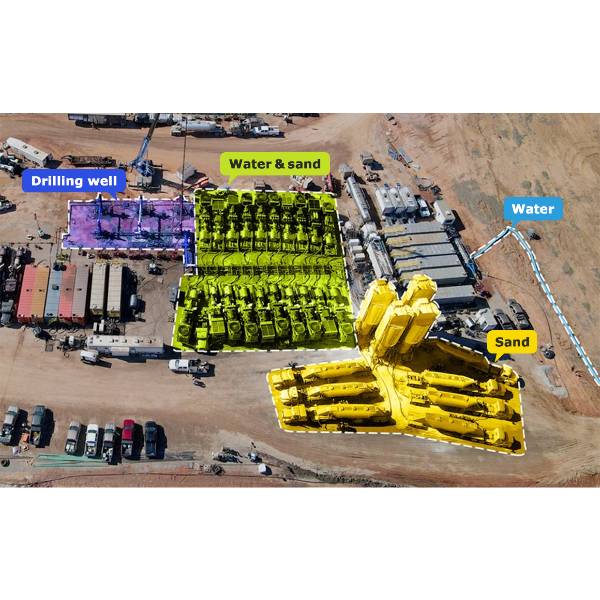 Trends & Reports
Trends & Reports
Recently, the market has been expecting that demand for petroleum products will recover thanks to the expansion of COVID-19 vaccination and supply disruptions of oil from the U.S. and Japan. In particular, due to the 7.3-magnitude earthquake that struck off the coast of Fukushima in Japan and the cold snap in Texas, the U.S., a few days ago, many refining facilities have been shut down. Thus, the industry is raising the possibility of a rebound in refining margins.
01 | The effect of the strong earthquake in Fukushima, Japan
According to the industry, refining margins have settled at the mid-$1 USD level since the end of last year when the corona vaccination began, showing a steady rise. The increase in the vaccine against COVID-19 showed signs of increased demand for petroleum products.
Since then, oil prices have started to rebound, and the refining margin, which has been in the negative and $1 range for the last year, has soared to $2.1 on February 16th. Accordingly, industry is bolstering expectations that oil refiners will continue to rebound toward the $4 mark, known as break-even point (BEP) of refining margin.
Kerosene and diesel are the factors that increase the likelihood of a rebound in refining margins. In Japan, kerosene is used for heating, thus the demand for kerosene usually soars in winter. However, the earthquake on February 13th in Fukushima has caused an emergency shutdown of at least two oil refining facilities in Japan.
According to a recent Platts report, all units at Japanese largest refiner ENEOS’ with the capacity of 145,000 barrels per day in Sendai, northeast Japan, were automatically shut down after the strong earthquake off Fukushima. Besides, “A few unidentified units at ENEOS’ 270,000 barrels per day Negishi refinery in Tokyo Bay also shut down due to a power outage triggered by the earthquake,” said a spokesman of ENEOS. As a result, it is reported that supply becomes more difficult, and on February 10th, kerosene stocks dropped a further 9.8% week on week to 11.70 million barrels on February 6th.
In this regard, the Korean securities industry analyzed that Korean refineries had experienced great benefit from the 2011 Great East Japan Earthquake, and after the current Fukushima earthquake, Japanese refineries has reduced or stopped operations due to safety issues. In addition, due to the nature of the refining facility, it will take at least 2 to 3 weeks to prepare to resume operation, which will cause a disruption in the supply of petroleum products in Japan for the time being. Therefore, this is likely to be a boon for the Korean refinery industry.
02 | The effect of the record cold in Texas, the U.S.
Earlier this week, Texas was hit by a brutal winter storm with the coldest temperatures in more than 30 years. It has been reported that this historic cold has left millions of Texans without power and a scale of about 4 million barrels of refinery facilities including big names such as Motiva and ExxonMobil have been shut down since early this week.
This means the deep freeze in the heart of the U.S. energy industry has reduced 21% of the country’s total refined oil production. This is the largest decline since Hurricane Harvey hit the Gulf of the U.S., where many refineries are located, in 2017. Western Texas Oil (WTI) for March delivery at the New York Commercial Exchange (NYMEX) closed at 60.5 USD per barrel, and it is the first time since January 2020 that it has exceeded the mark of 60 USD per barrel.
Regarding this, on Feb 15th (local time), Bloomberg reported that “The shutdowns portend tightening supplies and higher prices for everything from gasoline to propane in coming days and weeks in cities across the country that rely on the U.S. Gulf Coast for fuels.” It continued, “The impact on fuel supplied by pipeline will likely spread far beyond Texas if the outages last more than a few days, considering that the oil industry had already cut back production during the pandemic.”
Moreover, it is reported that as global refineries faced a limiting situation amid the COVID-19 crisis last year, scraps from major regional refineries are also actively taking place. BP announced late last year that its largest refining plant in Australia (146,000 barrels a day) would be shut down in the middle of 2021. Meanwhile Exxon Mobil would also shut down its refining plant in Australia, which produces 90,000 barrels a day. Industry sources view that due to the improved supply and demand balance in Australia, Europe and the U.S., existing oil refiners will benefit from the expansion of demand for oil, which has been dampened by COVID-19.
03 | Lack of supply in Japan and the U.S. – Korean refiners’ chance of turning to surplus in Q1
Due to the supply disruption of petroleum products from Japan and the U.S., the industry predicts that the refining margins will likely increase. Although it is an upward trend due to short-term supply disruptions, the market is giving positive expectation that refining margins will rebound.
On top of that, Saudi Arabia’s special production cut of 1 million barrels per day continues until March this year. In addition, global inventory indicators are likely to be announced in a positive direction for oil prices. Also, oil prices are expected to continue to rise for the time being due to the decline in the number of confirmed cases of COVID-19 in the U.S. and Europe, the rising supply rate of vaccines, and expectations for normalization of oil demand after the massive U.S. economic stimulus.
As the situation is on the verge of a rebound in refining margins along with rising oil prices, industry sources predict that Korean oil refiners’ earnings, which were negative in the last quarter of 2020, will turn to a surplus in the first quarter of this year.
Han Seung-jae, a researcher at DB Financial Investment Corp., said in a report dated February 15th that “The temporary supply imbalance caused by the Japanese earthquake has increased the possibility of a rebound in short-term regional refining margins. Considering the possibility of overshooting of oil prices, it could raise expectations for Korean oil refiners to improve their earnings in the first quarter of this year.”










 Youtube
Youtube Facebook
Facebook Instagram
Instagram Linkedin
Linkedin






















